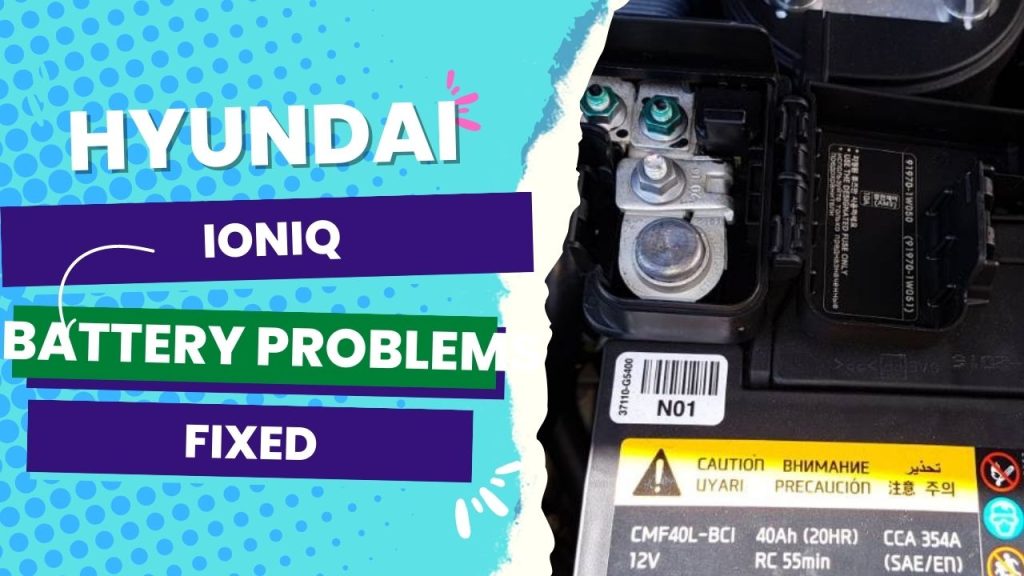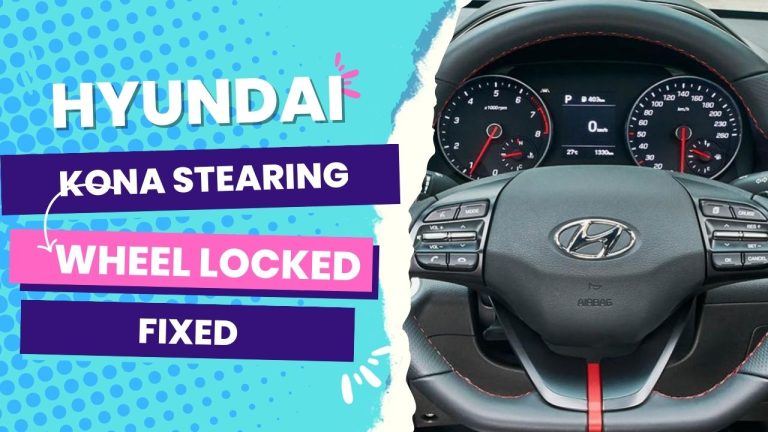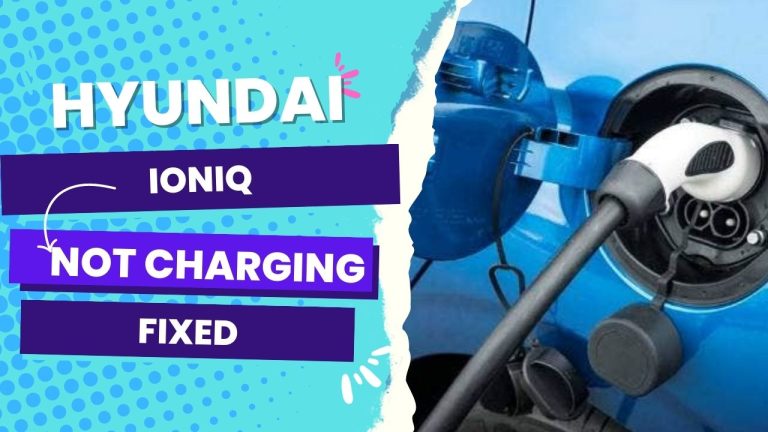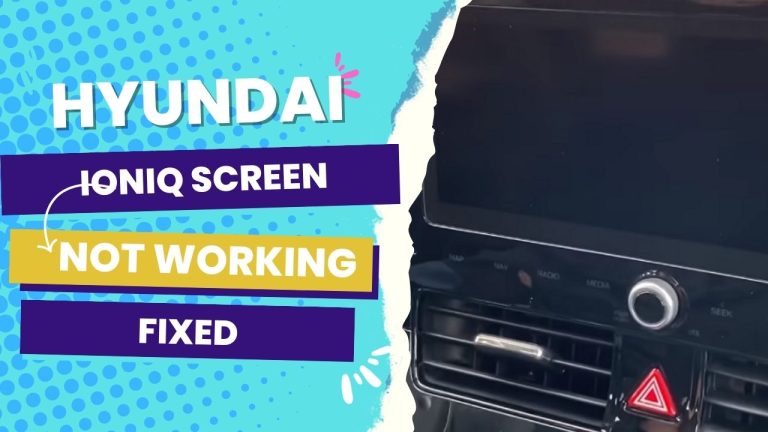The most common battery-related issues that many Hyundai Ioniq owners encounter include a dead battery, resulting in a non-responsive vehicle, excessive battery draining, or even a possible short circuit. If you are experiencing problems with the performance of your EV’s battery, it is also possible that the 12V has expired naturally or is a result of extreme weather conditions.
Electric vehicle batteries can be pricey. The rate at which the Ioniq’s Li-ion lithium battery degrades is something that many people want to know before making a purchase. Most Ioniq batteries have a lifespan of 10 to 20 years, depending on maintenance.
But after combing through hundreds of battery-related problems that multiple Ioniq owners have complained about on forums and complaint sites, I have put this article together to explain the most common issues and how you can get past them.
However, none of these will make much sense without explaining why most Hyundai Ioniq batteries have become notorious for their problems.
You Can Skip To Sections Here
- 1 Hyundai Ioniq Battery Issues: A Real Problem
- 2 Common Hyundai Ioniq Battery Issues and Fixes
- 2.1 1. Running out of power while driving uphill
- 2.2 2. Sudden power and acceleration reduction
- 2.3 3. Hyundai Ioniq Battery not holding a charge
- 2.4 4. The Hyundai Ioniq battery takes too long to charge.
- 2.5 5. Hyundai Ioniq Battery overheating during charging
- 2.6 6: Hyundai Ioniq Ev Slow Charging in Very Cold Temperatures.
- 3 Parting thoughts
Hyundai Ioniq Battery Issues: A Real Problem
A few months ago, Hyundai and its battery supplier, LG Chem Ltd., spent approximately $900 million to repair 4,700 2020 Ioniq EV sedans and 2019–2021 Kona Electric SUVs with potentially short-circuiting lithium-ion batteries.
Before we call that a record-breaking mass battery replacement by a major automaker, we must examine how it has affected the use of these EVs by current drivers like you.
While researching many of these battery-related issues, I have encountered Ioniq owners who temporarily repair the battery through the vehicle’s infotainment system or request an update from a Hyundai dealer.
If you are having issues with your Hyundai Ioniq battery, it is probably in light of the following problems:
- Running out of power while driving uphill
- Sudden loss of acceleration and power
- Even after scheduled charging of a 12-volt battery, the need to always use a battery bank device quickly wears out.
- Battery overheating while charging
In the next section, we will discuss these issues in more detail and discuss possible solutions.
Common Hyundai Ioniq Battery Issues and Fixes
1. Running out of power while driving uphill
One of the most common battery-related problems for the Hyundai Ioniq is that the car starts going downhill when moving uphill.
If your hybrid Ioniq is out of battery charge, this problem will likely occur since the traction battery cannot supply the car with the required power.
You must also look for a faulty fuel filter in the hybrid Ioniq. If the fuel filter is clogged, the engine won’t get enough gasoline for driving uphill.
Meanwhile, for the fully electronic Ioniq, the issue is often caused by a weak or uncharged battery.
The solution
In this case, I recommend a battery replacement. But this investment can cost between $2,500 and $4,000.
Check and ensure that the fuel filter is clean before spending much money. Consider utilizing Sports Mode for enhanced acceleration and a sportier driving experience when traversing such terrain.
You can consider a battery replacement if the problem persists after this diagnosis.
2. Sudden power and acceleration reduction
You may have experienced a sharp decrease in power and acceleration in your Ioniq after a while, a common battery-related problem. It happens when your Hyundai Ioniq suddenly loses all power—it seems like the car has been turned off.
When it occurs while driving and causes a loss of control, the situation becomes even more hazardous. This issue occurs concurrently with the appearance of the “EV Ready” indicator on the dashboard of your vehicle. However, the actual cause for concern is the car’s abrupt deceleration.
The solution
Sudden power and acceleration reduction is not something you should expect in your Ioniq, but it was reported last year by around 2,679 units of the Hyundai Ioniq Electric 2016–2019 models (discontinued).
The root cause stems from when the fail-safe mode of the car engages in automation, causing the acceleration and overall power to drop significantly.
If you’re faced with a similar problem, the best thing to do is confirm with your dealer if a recall was issued for your car model.
3. Hyundai Ioniq Battery not holding a charge
There have been dozens of complaints about the Ioniq’s inability to keep the 12V battery topped up enough in normal usage.
For example, you could leave your Ioniq indoors, fully charged, for the weekend and then come out to realize it has a dead battery.
Even though no accessories are plugged in, or nothing is left on.
While this may be attributed to weather conditions (more in the next section), it could also be due to a fault in the battery itself.
This mystery has never been adequately solved, but I can recommend a few workarounds.
The solution
In recent years, the OEM for Ioniq batteries has experimented with the algorithms that control the DC-to-DC converter, which is supposed to keep the 12 v DC battery fully charged at all times.
Many Ioniq users have leveraged an effective backup plan to get past this problem: a battery bank device such as ZipCharge or Fev, which saves a visit by the AA.
But even with these small suitcases of power, you will have to come out of the car during an urgent trip to get a charge.
That’s no absolute comfort.
As a result, Hyundai will need to issue software updates for nearly all of their EVs (both new and old) to ensure that charging becomes more aggressive when the vehicle is parked, as it remains at a low SoC even after an entire charge cycle of the 12V battery has completed.
4. The Hyundai Ioniq battery takes too long to charge.
Generally, electric vehicles handle extreme weather conditions poorly, and the Ioniq is no exception.
When the Hyundai Ioniq battery takes too long to change, it means the charging capacity of the vehicle has been compromised.
The possible cause of this is extreme weather conditions. Because of the temperature, the ionized liquid in the battery can freeze in a particular cell and stop getting a charge.
In other words, your vehicle will take longer or fail to charge completely when high temperatures are high. oo low
The solution
Unfortunately, extreme weather conditions leading to a longer charging period are one of the common challenges you face as an electric vehicle owner.
However, the Ioniq vehicle has the “Charge Management System” feature that can help you identify and understand how the battery temperature affects the charging speed and how to take appropriate action, such as finding a different charging station or adjusting the charging schedule, to optimize the health.
5. Hyundai Ioniq Battery overheating during charging
Finally, does your Ioniq battery get excessively hot while charging? It is a common problem that many Ioniq owners complain about, too.
This can occur due to a few factors:
- Malfunctioning charging system
- Problem with the battery management system
- or a faulty battery.
When this happens, it can damage the battery by reducing its capacity and expected lifespan. Worse yet, it may result in a fire.
The solution
The problem of battery overheating during charging is not trivial. I recommend you escalate it to a qualified technician.
However, before you do that, you can check the charging system. It could be the cable or adapter that needs replacement.
Also, you can keep an eye on the charging process and stop charging when the battery becomes excessively hot.
If your Ioniq is charging and you see any warning lights, or it acts strangely, you should call a technician.
6: Hyundai Ioniq Ev Slow Charging in Very Cold Temperatures.
If you drive a Hyundai Ioniq Electric in cold weather, you may have noticed that charging your vehicle takes longer than usual. This is a common problem encountered by many owners of electric vehicles (EVs) and is caused by decreased battery efficiency at low temperatures.
When the temperature drops, the efficiency of the cells that make up an EV’s battery decreases. This can lead to a slower charging speed, which can be inconvenient for EV owners who rely on their vehicles for daily transportation.
The Solution
Newer models of the Hyundai Ioniq Electric are equipped with a battery preconditioning function that mitigates this issue. The function functions by preheating the battery to the optimal temperature before charging, enabling faster and more efficient charging.
Using the battery preconditioning function, you can ensure that your Hyundai Ioniq Electric is charged quickly and efficiently, even in cold weather. Simply activate the feature before charging, and the battery will be preheated to the optimal temperature, enabling quick and efficient charging.
Parting thoughts
Battery issues in Hyundai’s Ioniq lineup are nothing new. If you go through some EV complaint sites, you will discover that this is a common problem.
In the above article, we discussed some of the most common issues with the battery on a Hyundai Ioniq and how to overcome them for any model year.
Speaking of the model year, it is fair to say that some Ioniq models are better than others regarding battery health and performance.
As with most lineups, earlier models have much room for improvement. For example, the 2017 and 2018 Ioniq are known for their sudden loss of power, engine problems, and low fuel economy of 57 mpg.
If you want to enjoy good battery health while using the South Korean EV (with minimal potential battery issues), consider the latest model, the Ioniq 5.




